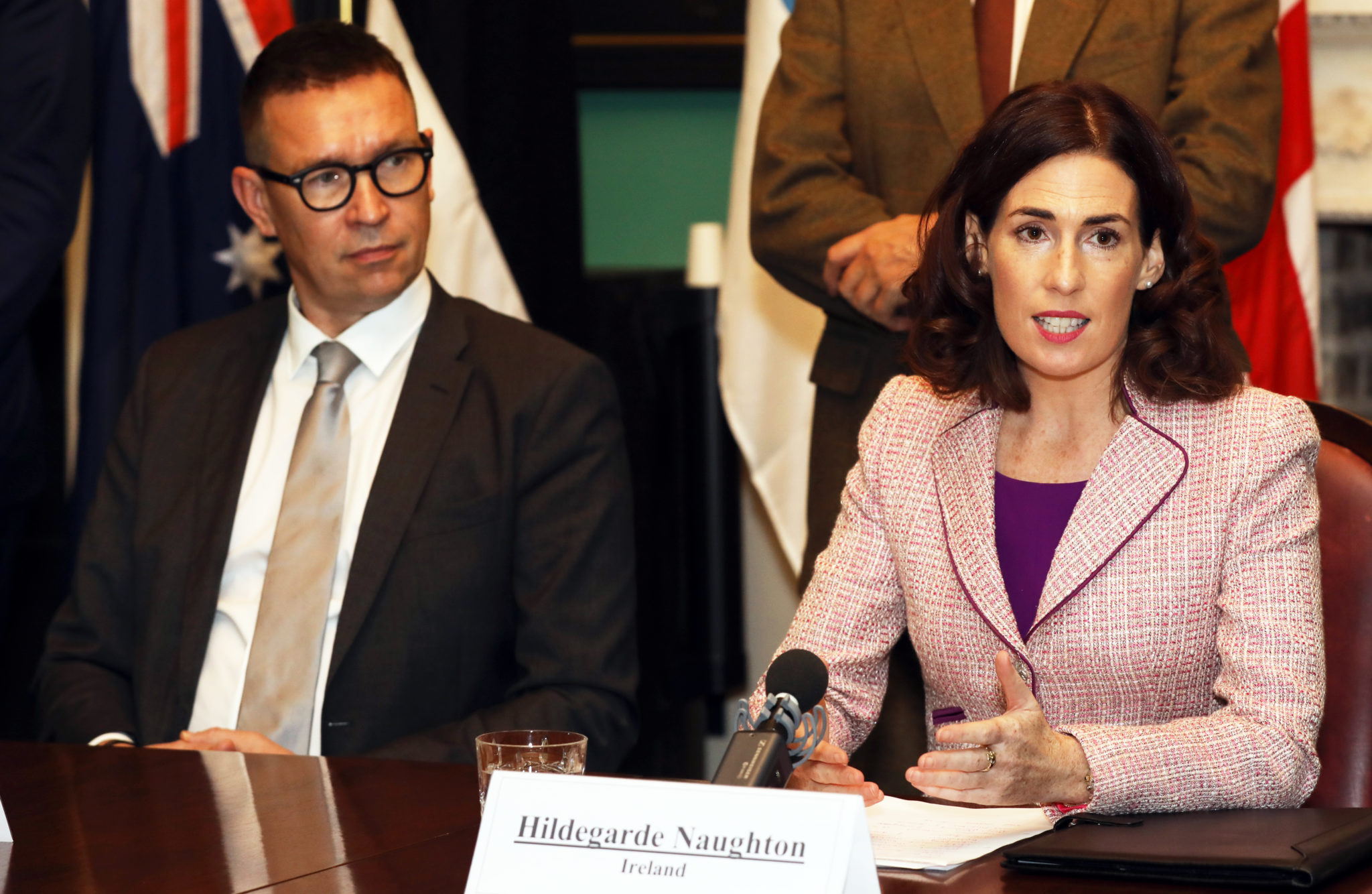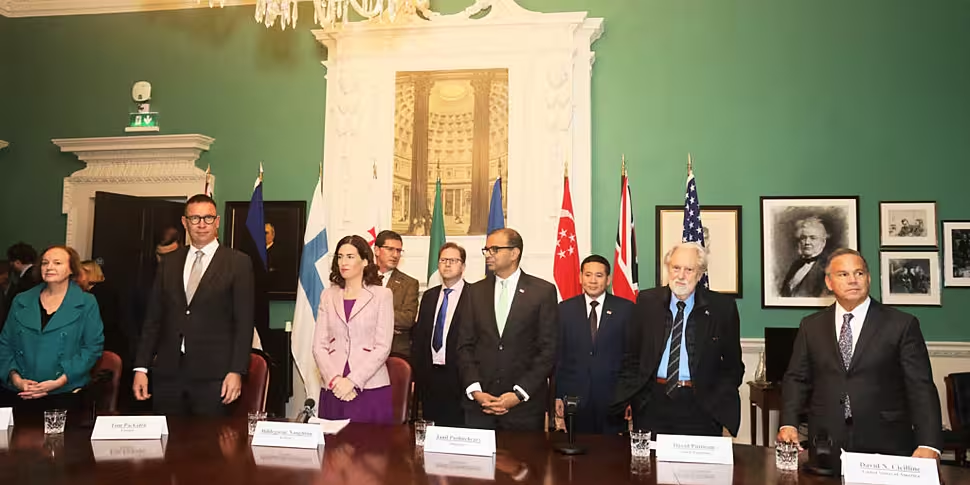An international committee on 'fake news’ has called on countries to ban misleading political advertising.
Law Makers from 10 countries joined representatives from social media companies Facebook, YouTube, Google and Twitter at the Grand Committee on Disinformation and 'Fake News' in Dublin today.
The committee called on countries to implement a moratorium on misleading political advertising until proper regulations can be put in place.
Meanwhile, representatives from seven of the countries in attendance signed a declaration calling for increased international cooperation on social media regulation.
The declaration contains nine principles aimed at combating harmful content, hate speech and election interference online.
 Hildegarde Naughton (R) with Finland representative Tom Packalén at the International Grand Committee on Disinformation and ‘Fake News’ in Leinster House, 07-11-2019. Image: Leah Farrell/RollingNewsi
Hildegarde Naughton (R) with Finland representative Tom Packalén at the International Grand Committee on Disinformation and ‘Fake News’ in Leinster House, 07-11-2019. Image: Leah Farrell/RollingNewsiThe committee was chaired by Fine Gael TD Hildegard Naughton – and she was joined by representatives from Australia, Finland, Estonia, Singapore, UK and the USA in signing the declaration.
She said the issue of misleading political ads was a common theme throughout the discussion and the committee agreed that countries should ban them until new regulations can be put in place.
“The message from the International Grand Committee is clear,” she said. “Self-regulation by global technology firms is not sufficient.”
“The principles agreed and signed today are a clear message that the social media landscape needs to change to boost transparency and protect democratic elections.
“There is a need for full transparency regarding the source, methods of targeting and funding for all on-line political advertising.
“As the internet is a global network the response to combat harmful content online must be an international collaboration.”
Declaration
The nine agreed principles in the declaration are:
- Online harmful content and disinformation are complex problems which require political and civic collaboration to combat; left unchecked, these problems will undermine our civic space and democratic institutions.
- The work of the International Grand Committee has proven valuable in highlighting the issue of disinformation and desires this work to continue.
- The Committee continues to recognise the conflicting principles that sometimes apply to the regulation of the internet, including the aim to protect freedom of speech, in accordance with national laws, while, at the same time, countering abusive speech and disinformation.
- There is need for full transparency regarding the source, targeting methodology and levels of funding for all online political advertising but such controls should not be interpreted as a blanket ban on advertising relating to the political sphere.
- The Committee believes that global technology firms cannot on their own be responsible in combatting harmful content, hate speech and electoral interference and that self-regulation is insufficient.
- Technology companies should be fully accountable and answerable to national legislatures and other organs of representative democracy.
- The internet is global and accordingly it is vital that an internationally collaborative approach is taken with regard to regulation.
- The Committee recognises the initiatives taken by individual countries and non-governmental organisations in this space, but these require more co-ordination across national boundaries.
- The Committee therefore recognises the need for a dedicated international space which provides such co-ordination of internet regulations and commit to work with governments and relevant multilateral organisations in the establishment of such governance structures.
"Truth police"
Earlier this afternoon, Facebook’s Head of Global Policy Management Monika Bickert told the meeting that the platform would continue to run political advertisements without fact-checking them.
"We don't think that Facebook should be the truth police for the entire world, and we should not determine for citizens what they shall and shall not see in terms of truthfulness from their politicians,” she said.
Meanwhile, Twitter’s director of public policy for Europe Karen White said the platform had banned political ads to ensure to ensure political reach is earned rather than paid for.









